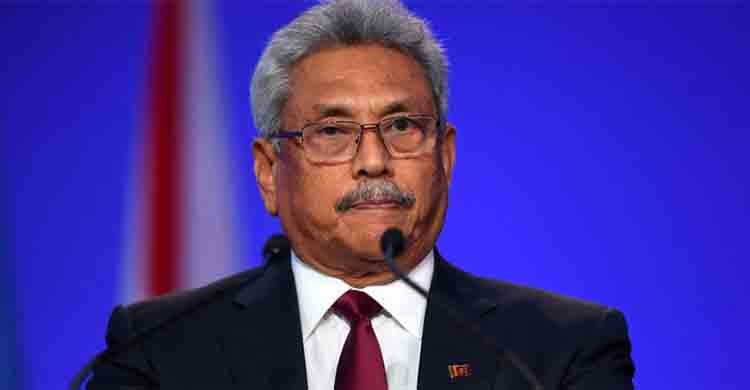Singapore asked to indict Sri Lanka's exiled leader Gotabaya
25 July 2022, 07:56 pm | Updated: 23 November 2024, 01:47 pm

An international human rights group has formally asked Singapore to indict Sri Lanka's deposed president Gotabaya Rajapaksa for crimes against humanity during his country's decades-long civil war, officials said Monday.
Rajapaksa fled his country earlier this month after his official residence was stormed by tens of thousands of protesters infuriated by the island nation's painful economic crisis.
He later escaped to the Maldives in a military plane and travelled on to Singapore, from where he tendered his resignation, reports AFP.
Rajapaksa helmed Sri Lanka's defence ministry while his brother Mahinda was president and was in charge when the country's brutal Tamil separatist conflict came to a bloody end in 2009.
Rights groups accused government forces of killing 40,000 Tamil civilians in a no-holds-barred offensive during the war's final weeks.
The South Africa-based International Truth and Justice Project said it had urged Singapore to exercise its universal jurisdiction to arrest the former president for grave breaches of international humanitarian law.
"These include murder, execution, torture and inhuman treatment, rape and other forms of sexual violence, deprivation of liberty, severe bodily and mental harm, and starvation," according to the 63-page complaint.
Singapore's Attorney General's Chambers (AGC) confirmed Monday it had received a complaint from the group on the weekend, without giving further details.
The once powerful Rajapaksa clan has long maintained that no civilians were killed in crushing a Tamil Tigers separatist movement, resisting repeated international calls for an independent investigation.
Soon after coming to power in November 2019, Rajapaksa, a retired army lieutenant colonel, granted a pardon and freed an army sergeant on death row for the murder of eight Tamils, including three children.
Last year, Rajapaksa granted an amnesty to his close associate Duminda Silva, another convicted murderer who was on death row for killing a former lawmaker and four others.
Sri Lanka does not carry out the death penalty in practice and the convicts were serving life sentences when the ex-president freed them, despite local and international condemnation.
Rajapaksa has also been accused of leading death squads, but he denied abducting dissidents and journalists and killing them when he served as defence secretary between 2005 and 2015.
Two cases against him in a California court were frozen in 2019 after he became president and acquired sovereign immunity.
One was filed by 11 people who survived torture while the other was by the daughter of a prominent anti-establishment editor allegedly killed at Rajapaksa's behest.






















